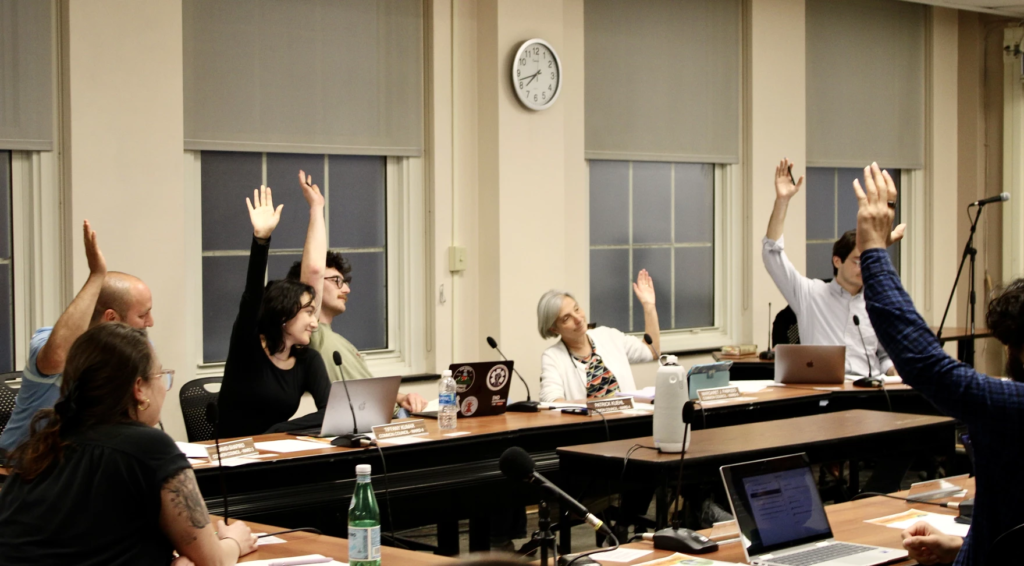On May 1, 2024, the Ithaca Common Council unanimously passed Justice50, part of the ongoing implementation of the Ithaca Green New Deal, which passed in 2019. During the public comment session, Siobhan Hull (a member of the Sustainability and Climate Justice Commission and organizer of Sunrise Ithaca) and Jorge DeFendini (Chapter Chair of the Ithaca Democratic Socialists of America) expressed support for Justice50. This legislation expands on the federal Justice40 program and will help the city reach the equity goals established by the Ithaca Green New Deal. Rebecca Evans, the Sustainability Director for the City of Ithaca, called Justice50 the “most aggressive [climate] resolution in the country” that would make Ithaca be the “first city in the United States to operationalize climate justice.”
Justice50 is a component of the Ithaca Green New Deal, which passed in 2019. In addition to reaching carbon neutrality by 2030, the Ithaca Green New Deal pledges to reduce social, historic, and economic inequities. Justice50 is the framework for making that happen.
Transitioning to sustainable living is often expensive and inaccessible. The goal of Justice50 is to help Climate Justice Communities (CJCs) make this transition in ways that won’t increase gentrification and economic inequality. CJCs are defined as consisting of people who are most affected by environmental pollution and climate change because of their socioeconomic status. These people follow at least one element from a list of criteria, including those who experience food insecurity, who are unhoused, or who make less than sixty-five percent of the county’s average annual income. CJCs bear the greatest burden from climate change and require the greatest investments from the city.
A core component of Justice50 is that it allocates half of the total Ithaca Green New Deal program funding to CJCs, as well as half of the City’s capital project to CJCs. An additional goal is that forty percent of the participants in green jobs workforce training and development are Climate Justice Individuals. Climate Justice Individuals are people from CJCs, and may also be people who do not meet the CJC criteria but still experience substantial economic oppression and marginalization. This includes formerly incarcerated people, people without access to reliable internet, and underemployed single parents.
Another part of Justice50 allows ten percent of the City’s capital project budget to be controlled by participatory budgeting, meaning that Ithaca residents will have a direct role in deciding how the money is spent.
Because the Ithaca Common Council only recently voted to adopt this framework, there is much work to be done before the legislation will effect noticeable change. First, City staff must create a rubric for evaluating whether proposed capital projects will benefit CJCs. Then, they will conduct a survey to collect additional data about CJCs. Staff will set up a working group of community members whose job is to figure out how the participatory budgeting process will be implemented, and present their proposal to the Common Council by May 2025.

Common Council voting to pass Justice50. Rebecca Redelmeier/WSKG
